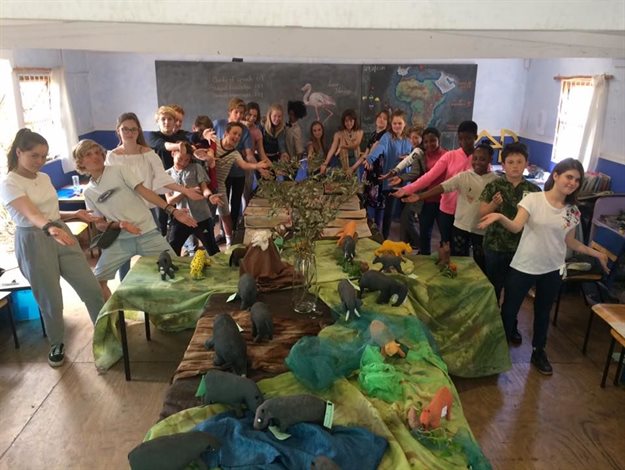
Subscribe & Follow
The importance of story
If you want your children to be intelligent, read them fairy tales. If you want them to be more intelligent, read them more fairy tales.

Humans are collections of stories
We tell ourselves stories all the time. Mostly we don’t even know that we’re doing it. Everything we are is story – our personal growing-up-in-this-particular-family stories; our this-is-my-culture stories; the stories we tell ourselves about why we are where we are, as adults, in the present – struggling in our jobs, in our homes, in our country, on our planet. Story is identity: we are the tale of how we got here, where we are now, and where we think we can go from here.
We use storytelling all the time
We tell stories to heal ourselves, and to make ourselves real, and to bind ourselves to other like-minded people – and separate ourselves from people we are prejudiced against.
When we’re arguing with a stranger on Facebook about whether to leave the country, that’s storytelling. We’re telling them that our personal story, or the story of our people, deserves more recognition and respect than their personal stories, or the stories of their people.
When we’re paying to have a therapeutic-someone listen to our sadness and hurt, that’s storytelling. (So is drinking with friends!) It’s the story of where things went wrong, and we are trying to grab hold of both ends of our broken narrative threads to tie them together again so that our life-stories make sense to us.
When we listen to a song or read a book, we think, this song, this book, speaks to me. It tells me the story of my life. It sees me; it makes me more real; it makes my experiences meaningful. And everyone else is listening to songs and reading books too: so many songs, so many voices, in our country and on our planet.
Stories make real communities
We don’t only tell these stories with our mouths. Our bodies tell stories; so does the language we use; our actions are detailed narratives too. And all these stories add up and form communities – at home, at school, at work.
So when you send your child to school, that is also storytelling. You are telling them that imagination, independent action and personal responsibility are important – that they are full human beings, whose actions make a difference – or you are telling them that bullying authority, meaningless drilling and joylessness are what they can expect from the world, now and for the rest of their lives.

Fairy tales are not only fairy tales
There are lots of stories. Sometimes the story is about the grandmother and the wolf; sometimes it is about the girl who made stars from wood-ash. They are not really children’s stories, or fairy tales with a secure happily-ever-after: they are ways of looking at the world. They are so important because they make our children critical thinkers, people who can overcome challenge and conflict. They make our children flexible and resilient decision-makers. Those stories give our children choices, and they give our children the strength to be kind, and to find personal peace. And that means they are able to live in more complex communities, where everybody’s story can be heard: in an African context and in the wide world.
Waldorf schools are rich in story
Waldorf schools have a strong mathematical, scientific, musical and language focus, but first, when they are young, we show our children the old stories so that they learn to make new connections. They will have the rest of their lives to be task-oriented, competitive, crowd-pleasing. When they are young we need to help them develop a strong sense of self, and the stories of our culture are the basis of everything else that follows. We have to get that right if we want individuals with moral imagination – adults who can empathise with the suffering of others, but still behave in the best interests of the majority.
Our children should go to schools where they are given stories, and where they can make their own stories, so that they can see the pattern of their lives, be active agents of change in the world, and find their places in it.
Said Rudolf Steiner, founder of Waldorf schools:
Receive the children in reverence, educate them in love, and send them forth in freedom.
















